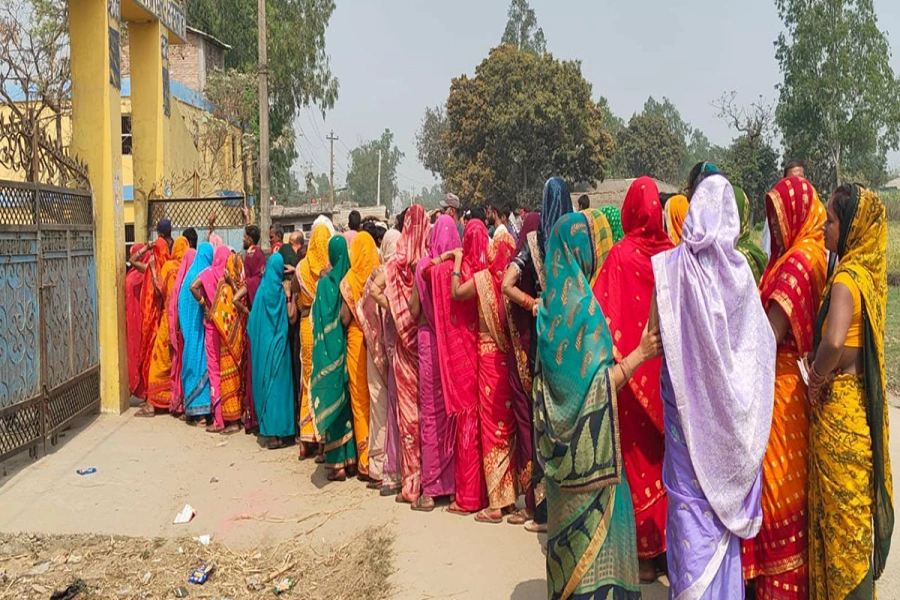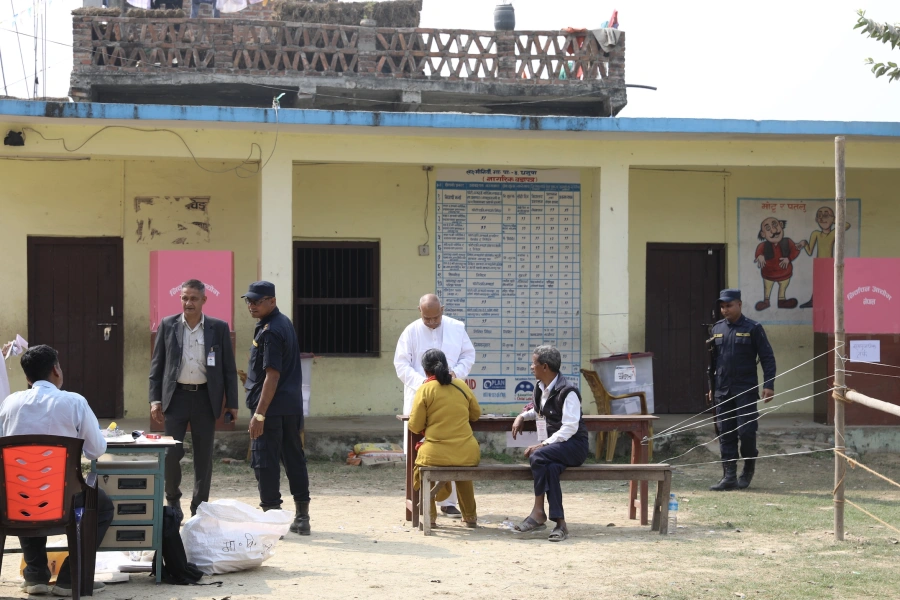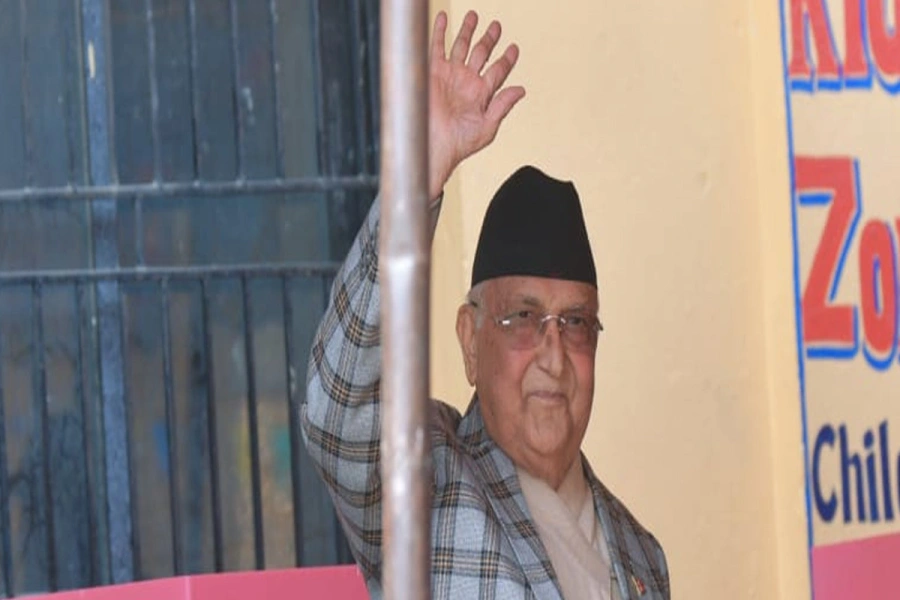The people’s wishes and aspirations have been badly dampened by the political leaders. They have been, by name, political leaders but they have turned out to be political dealers. Consequently, the people wonder if they have made a mistake by overthrowing the monarchy. Voices have been on the rise against federalism.
Following the promulgation of the Constitution of Nepal on 20th September, 2015, Nepal was declared a ‘Federal Democratic Republic’. The preamble of the constitution reads,” We, the people of Nepal, in exercise of the sovereign powers vested in us, embracing the sovereign right of the people …hereby promulgate this constitution through the Constituent Assembly.”
After a decade-long civil war, a comprehensive peace agreement between the Government of Nepal and the Communist Party of Nepal (Maoist) in 2006 drove Nepal on a new avenue of democratization and constitution making followed by the abolition of monarchy in 2008. The country embraced a parliamentary-federal constitution and an independent judiciary with powers of judicial review in 2015. Amidst fierce Madhesi and Janajati extra-parliamentary movement of protests, the government was paralyzed and brought peace by promising amendments to fundamental rights and ‘discriminations’ against them, but these promises were not fulfilled and the constitution got into a shaky start. Madhesi parties have not accepted it till date.
The dissolution of parliament twice by a government with almost a two-thirds majority headed by KP Oli led the nation again into another political quagmire. However, the Supreme Court reinstated parliament on both occasions and ordered that Sher Bahadur Deuba be appointed as the prime minister of the nation. There is no hope that Deuba, who has already been tested as the prime minister four times, can do any miracle this time. He has already started playing the same mud-slinging game by fragmenting the parties with an ordinance. It has been almost two months but Deuba has not been able to give full shape to his Cabinet. Corruption and bribery have been rampant. As per the recent report of the Attorney General, financial irregularities are intolerable. Policy corruption is another big issue in Nepal. Furthermore, federalism has been so costly now, whether we can continue holding it has been a big question.
Until the Constitution of Nepal 2072 was promulgated, there was a tumultuous and chaotic environment whether the constitution would be prepared or not. Since the interim period of the government, after the Comprehensive Peace Accord between the government and the then Maoist party, we have been enjoying Republicanism for almost 15 years. There have been 13 governments so far since the country was declared as the “Federal Democratic Republic of Nepal” in 2008. The people had kept a huge expectation for structural changes in the Nepali Politics. It is a polar fact that the people always have expectations for changes. But nothing of that sort has happened yet. It is a fact that our nation comprises 105 castes and creeds and none of the castes has a clear majority. Federalism was felt as a crying need to address the rights of marginalized, unprivileged communities along with women, Madhesis, Tharus, ethnic communities and others.
Twist of fate: Wild elephant invades Elephant Festival

The people’s wishes and aspirations have been badly dampened by the political leaders. They have been, by name, political leaders but they have turned out to be political dealers. Consequently, the people wonder if they have made a mistake by overthrowing the monarchy. Voices have been on the rise against federalism. If the political parties are not able to assimilate their weaknesses and mistakes and try to correct the wrong political course, the political spectrum of the nation will go through anarchism and ultimately invite an unprecedented condition.
The process of institutionalizing the federal state takes a long time with a visionary leadership only. It does not happen overnight. Distribution of power, resources, and inclusiveness, making an equal and equitable society is easier said than done.
Federalism
Federalism is a form of government designed to get the better of two worlds: the advantages of a unified state and the benefits of the diversity which is inherent in the people and the regions which make up the state (Johnson, 1998). Elliot Bulmer defines federalism as “a constitutional arrangement which is used as a tool to divide power between diverse units of government”. Thus, federalism comprises partly self-government with partly shared-government.
Federalism was first introduced in North America as pioneer Presidential–federal and Parliamentary-Federal forms in the USA and Canada respectively (Niraj Kumar, 2019). There are only 25 federal countries across the globe out of 193 nations. Out of eight largest countries in the world by territory, seven countries have a federal system – USA, Canada, Russia, India, Brazil, Australia, and Argentina. China, the third largest country of the world, is a unitary state.
Federalism is mostly associated with culturally diverse or territorially large countries
Identity-based federalism and efficiency-based federalism
Some outstanding examples of federal nations are – Argentina, Brazil, Canada, Germany, India, Malaysia, Nigeria, Pakistan, South Africa, and the United States. Only five out of 48 sovereign states have adopted some kind of federal or quasi-federal forms of government in Asia. In Africa, it is even more unacceptable. Out of 54 African states, only five can be counted as some kind of federal or hybrid federal formation.
Federalism has not been particularly accepted in Asia – the world’s largest continent. South Asian nations which have adopted federalism are – India (1950), Pakistan (1956, 1962, 1973), Myanmar, formerly Burma, (1947, 1974, 2008), Malaysia (1956), Iraq (2005) and Nepal (2015).
Out of all these nations, none has been able to utilize federalism properly. Though we take the example of India, it had to pay a lot in order to sustain federalism. Hopefully, after the advent of the BJP government headed by Narendra Modi, India seems to be moving towards economic growth. Talking about Pakistan, it has not been able to balance the federal features yet. The roles of the central government and federal agencies have dominated the affairs of units under both constitutional governments and military regimes. The constitutional government and interference of the military has always been the bone of contention in Myanmar. Malaysia has also gone through a tremendous past to institutionalize federalism, but its economic growth with the leadership of Mahathir Mohammad is, comparatively, satisfactory.
In Iraq, the federal government is called an Islamic democratic, federal parliamentary republic. The constitution of 2005 declared Iraq as a federal republican state with the direct interference of the USA and its allies. It has not been able to create peace, security and prosperity yet. The power-sharing is mostly enjoyed by the Kurdish during the constitution making process. The other middle-east nations, where foreign interference dominated the internal mechanisms of the forms of government, like Egypt, Iran, Iraq, Libya, Syria, Yemen, have never used federalism successfully. Most of these nations have been destined to go through political imbroglios. We have been observing very closely about the pathetic situation of Afghanistan since 1979 – the battle field of powerful countries – USA and the then USSR and just recently the possible entry of China after the Taliban took over power. Many federal states, like Yugoslavia, in East Europe after the fall of the USSR disintegrated after the 90s.
Taking everything into account, a question arises as to whether Nepal can hold federalism. It has been felt that foreign interference in Nepal has increased significantly after it was declared a federal and secular state republic. Rational citizens are scared that it might, sooner or later, have to face the same destiny as Afghanistan, Iraq, and Syria. Now it depends on us - whether we need the same system with new leadership making it less costly, changing the election modality in the nation or we shall have to suffer more trusting the same old parties or leadership, bearing with federalism as “the white elephant”.




-69a940c05c766-1772700256.webp)
































